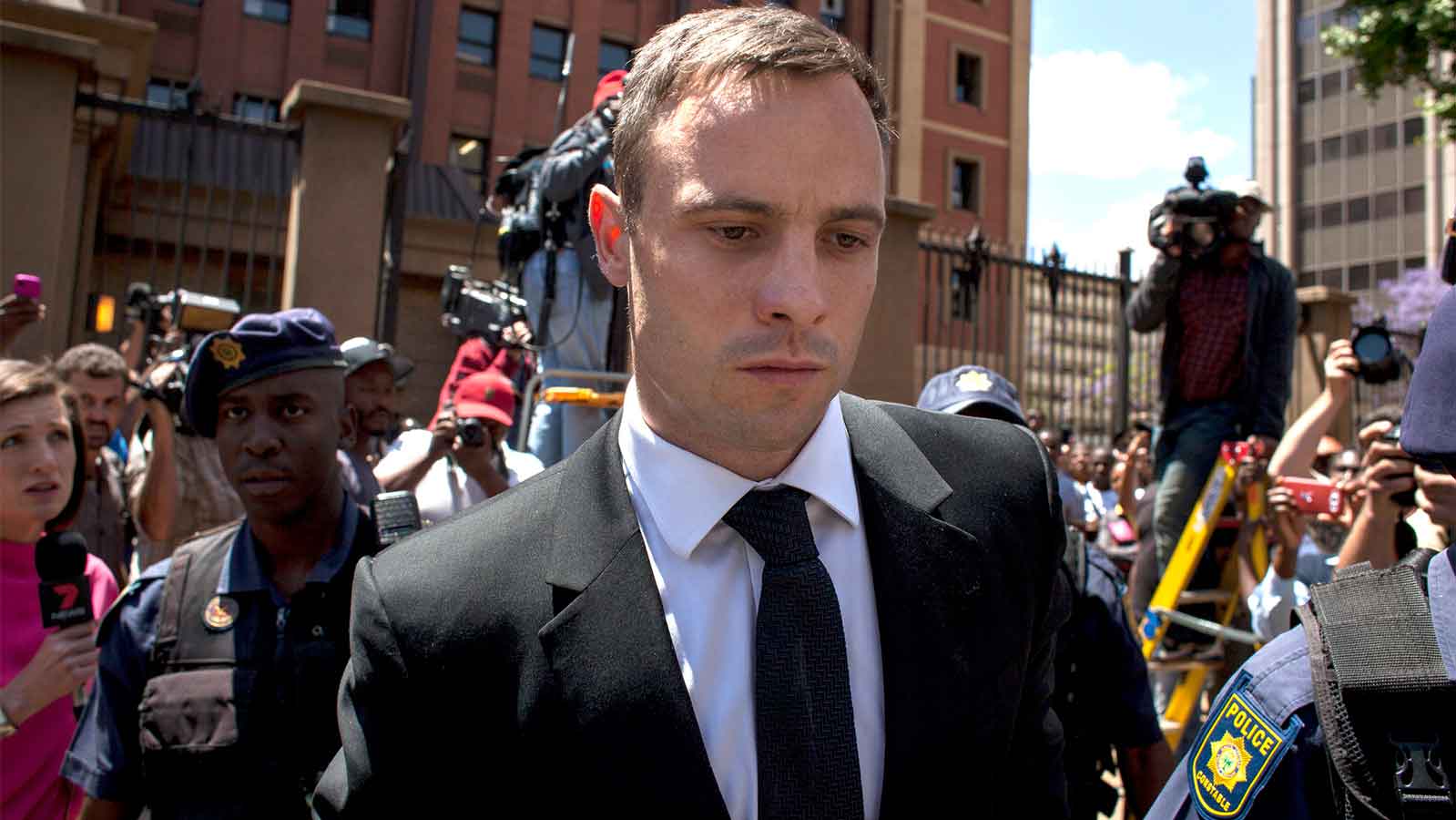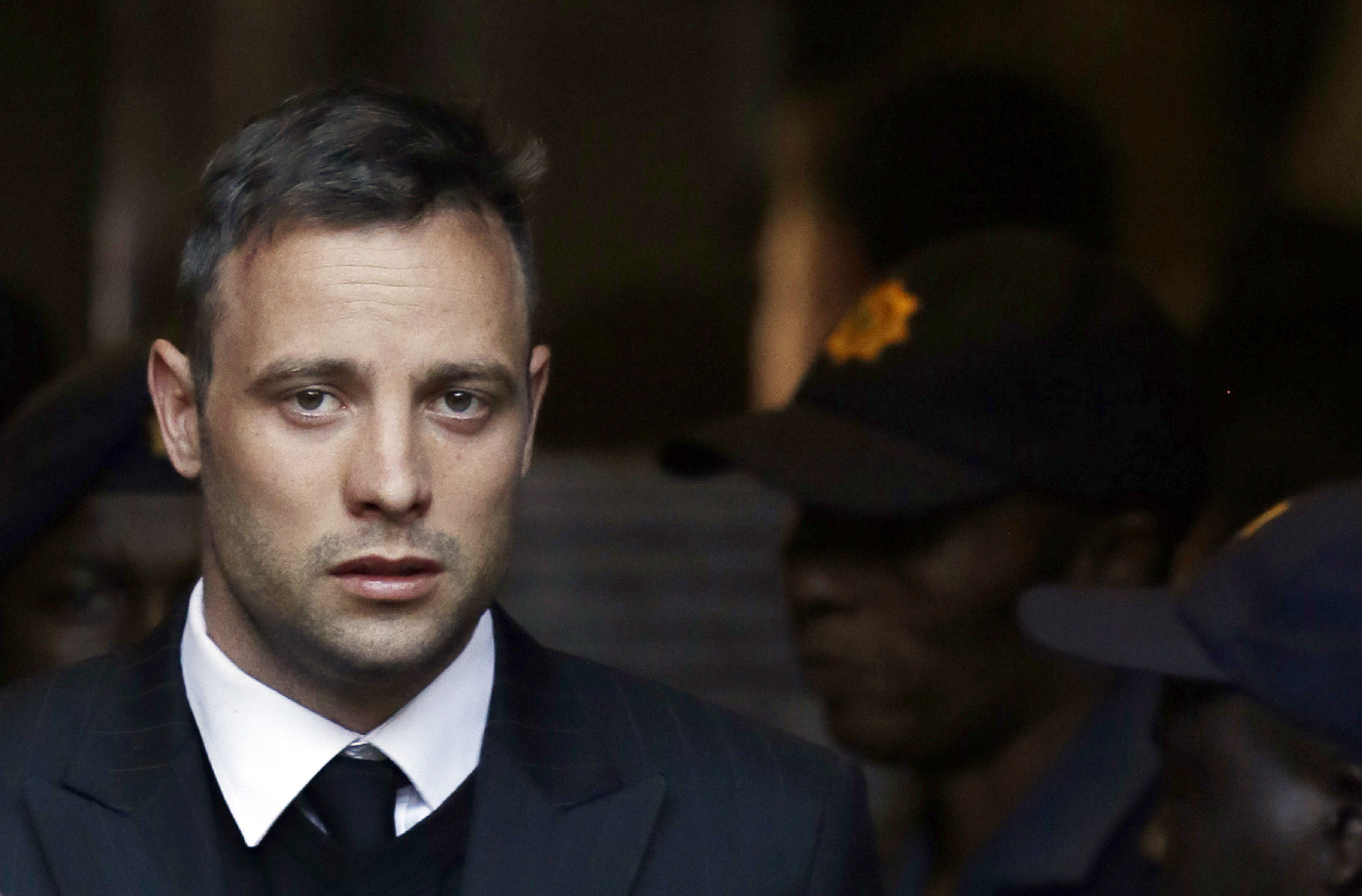
Former Olympic runner Oscar Pistorius was denied parole Friday after it was decided that he had not served the “minimum detention period” required to be released from prison following his murder conviction for the 2013 killing of his girlfriend, Reeva Steenkamp.
The parole board ruled Pistorius would be able to apply again in August 2024, South Africa's Department of Corrections said in a statement. The board cited a new clarification on Pistorius' sentence that was issued by South Africa's Supreme Court of Appeal three days ago, according to the statement.
The result was a surprise but there has been legal wrangling over when Pistorius should be eligible for parole because of the series of appeals in his case. He was initially convicted of culpable homicide, a charge comparable to manslaughter, in 2014 but the case went through a number of appeals before Pistorius was finally sentenced to 13 years and five months in prison for murder in 2017.
Pistorius has served more than seven years taking into account time served from late 2014 while his initial manslaughter conviction was overturned after an appeal by the prosecution and replaced with a murder conviction.
Serious offenders must serve at least half their sentence to be eligible for parole in South Africa.
Pistorius fired four shots with his licensed 9 mm pistol through a toilet cubicle door in his upscale Pretoria villa to kill the 29-year-old Steenkamp, a model and reality TV star, in the pre-dawn hours of Feb. 14, 2013.
The parents of Reeva Steenkamp, the woman Oscar Pistorius shot dead 10 years ago, still believe he is lying about their daughter's killing and opposed the former Olympic runner's application for parole, their lawyer said Friday.
"Unless he comes clean, they don't feel that he is rehabilitated,” lawyer Tania Koen told reporters outside the Atteridgeville Correctional Centre prison in Pretoria, where Pistorius has been incarcerated since 2016 and where his parole hearing took place Friday.
“He’s the killer of their daughter. For them, it’s a life sentence,” Koen said before the hearing.
Feeling out of the loop? We'll catch you up on the Chicago news you need to know. Sign up for the weekly Chicago Catch-Up newsletter.
Pistorius has always claimed he shot his girlfriend in error after mistaking her for a dangerous intruder. He said he didn't realize that she got out of bed and went to the bathroom. But her parents, Barry and June Steenkamp, have said they still believe he killed her intentionally in anger in a late-night argument.
Steenkamp's mother, June Steenkamp, submitted written and oral statements at Friday's hearing opposing Pistorius' application to be released from prison, the parents' lawyer said. Koen said June Steenkamp addressed the parole board in a separate room to Pistorius.
June Steenkamp earlier sat grim-faced in the back seat of a car nearby while Koen spoke to reporters outside the prison gates ahead of the hearing. June Steenkamp and Koen were then driven into the prison in a Department of Corrections vehicle.
“She doesn't feel that he must be released,” Koen said. A decade after their daughter's killing, Koen said time "hasn't healed” the grief for Barry and June. “For them, it’s 10 missed birthdays, 10 Mother's Days, 10 Father's Days, 10 Christmases."
Barry Steenkamp met face-to-face with Pistorius last year in what’s known in South Africa as a victim-offender dialogue and which is part of the pre-parole process. That meeting was “traumatic," Koen said.
Submissions from a victim's relative are just one of the factors a parole board takes into account.
Pistorius’ parole lawyer, Julian Knight, has previously said Pistorius has been a “model prisoner.” He didn't respond to messages seeking comment ahead of the parole hearing.
Once hailed as an inspirational figure for overcoming the adversity of his disability, Pistorius’ murder trial and downfall captivated the world. His conviction eventually led to him being sent to the Kgosi Mampuru II maximum security prison, one of South Africa’s most notorious.
He was moved to the Atteridgeville prison in 2016 because that facility is better suited to disabled prisoners. Pistorius's lower legs were amputated when he was a baby because of a congenital condition and he walks with prosthetics.
There have been glimpses of his life in prison, with reports claiming he had at one point grown a beard, gained weight and taken up smoking and was unrecognizable from the world-famous athlete he once was.
He has spent much of his time working in an area of the prison grounds where vegetables are grown, sometimes driving a tractor, and has reportedly been running bible classes for other inmates.
There have also been flashes of trouble. Pistorius sustained an injury in an altercation with another inmate over a public telephone at the prison in 2017. A year earlier, Pistorius received treatment for injuries to his wrists, which his family denied were a result of him harming himself and were a result of him falling in his cell.



